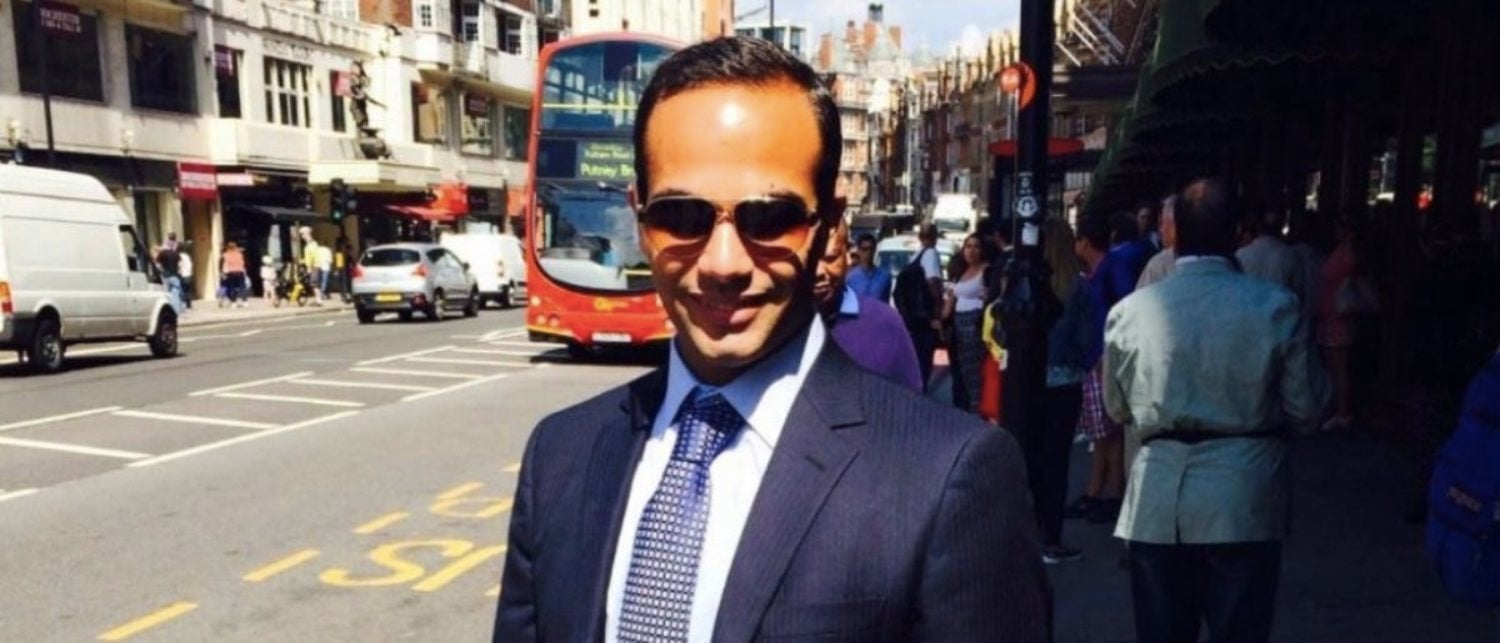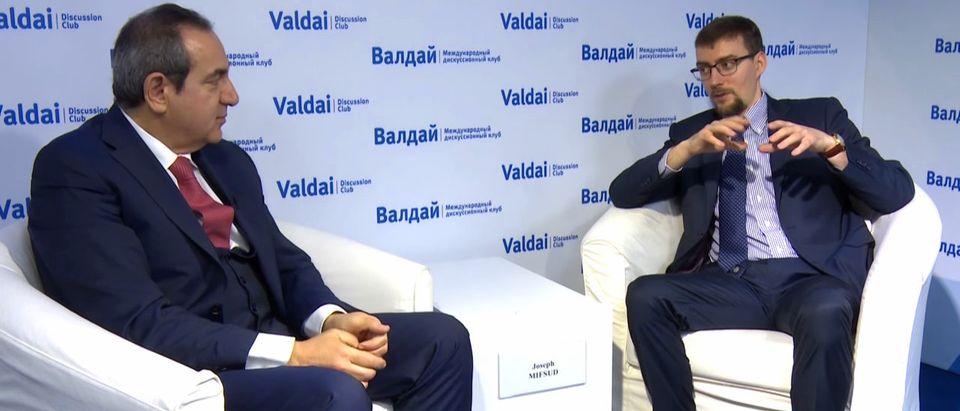- The Justice Department inspector general concluded that Joseph Mifsud was not working for the FBI when he made contact with former Trump campaign aide George Papadopoulos in 2016.
- It is unclear whether the report addresses the other conspiracy theory about Mifsud: that he was a Russian agent.
- Mifsud told Papadopoulos during a meeting in London on April 26, 2016 that he had learned that the Russian government had “dirt” on Hillary Clinton in the form of “thousands” of her emails.
- The special counsel’s team ultimately found no evidence that Papadopoulos or anyone else on the Trump team conspired with Russia to obtain Clinton’s emails.
The Justice Department’s inspector general has reportedly concluded that a Maltese professor who established contact in 2016 with former Trump campaign adviser George Papadopoulos was not an FBI informant, as some Trump allies have theorized.
The reports about the inspector general’s findings do not say whether Inspector General Michael Horowitz found evidence to support a competing conspiracy theory about Joseph Mifsud: that he was a Russian agent. The special counsel’s team suggested in court filings and in its final report that Mifsud was suspected of working on behalf of Russians when he made contact with Papadopoulos in 2016.
Two U.S. officials said Horowitz scrutinized Mifsud’s activities in 2016 as part of an investigation into the origins of the Trump-Russia probe, according to The Washington Post. Horowitz determined that Mifsud was not working for the FBI when he made contact in 2016 with Papadopoulos, The New York Times reported. (RELATED: FBI Lawyer Who Sent ‘Resistance’ Text Messages Also Altered Russia Documents)
Horowitz is expected to release the highly anticipated report on Dec. 9. Sources said Horowitz found evidence that an FBI attorney altered documents that were used to obtain surveillance warrants against Carter Page, another former Trump campaign aide, the Times and Post also reported. The lawyer, Kevin Clinesmith, interviewed Papadopoulos in February 2017.
Mifsud has been one of the most mysterious figures to emerge during the special counsel’s investigation. He went into hiding in October 2017 after his links to Papadopoulos were revealed through court filings as part of the Trump aide’s plea deal with the special counsel’s team.

The Justice Department’s inspector general has reportedly concluded that a Maltese professor who established contact in 2016 with former Trump campaign adviser George Papadopoulos was not an FBI informant, as some Trump allies have theorized. (Photo: LinkedIn)
Papadopoulos has said that Mifsud told him during a meeting in London on April 26, 2016 that the Russian government had “dirt” on former Secretary of State Hillary Clinton in the form of “thousands” of her emails. Papadopoulos, who pleaded guilty in the special counsel’s probe to lying about the timeline of his interactions with Mifsud, has alleged that the mysterious professor was part of setup involving Western intelligence agencies.
Papadopoulos and Mifsud stayed in contact for several months through the campaign. Mifsud introduced Papadopoulos to a woman he falsely said was Russian President Vladimir Putin’s niece. He also put Papadopoulos in contact with Ivan Timofeev, a scholar with a Russian think tank that has ties to Russia’s foreign ministry.
Mifsud tried to arrange meetings between Russian government officials and Trump campaign advisers, but they never materialized.
Papadopoulos has denied ever seeing any of the emails that Mifsud referenced or telling anyone on the Trump campaign about Mifsud’s remarks.
The special counsel’s report said that Mifsud made false statements of his own regarding his interactions with Papadopoulos. The report also said that Mifsud appeared to have drafted and directed emails that the woman he falsely said was Putin’s nice sent to Papadopoulos. Unlike Papadopoulos, the special counsel did not charge Mifsud.
Papadopoulos showed up on the FBI’s radar, not because of his interactions with Mifsud.
The Trump aide met on May 10, 2016 in London with Alexander Downer, who served at the time as Australia’s high commissioner to the U.K. Downer said in a memo he wrote after the meeting that Papadopoulos said that the Russians might release information that could help the Trump campaign closer to the election.
The Australian government passed that memo to U.S. authorities after WikiLeaks began releasing hacked Democratic National Committee emails on July 22, 2016. The FBI opened Crossfire Hurricane, the code name for the Trump-Russia counterintelligence probe, several days later.
Mifsud’s disappearance has fueled conspiracy theories about why he shared the email tip to Papadopoulos.
It is unclear what evidence Horowitz looked at as part of his investigation. Attorney General William Barr reportedly visited Italy, where Mifsud is in hiding, in September to listen to an audio statement from Mifsud.
A person claiming to be the mystery professor said in a voice recording sent to an Italian news outlet earlier in November that he was not affiliated with any intelligence agencies.
The person disputed the conspiracy theories about him, and said he had no affiliations with any “secret service, intelligence service or anybody of this sort.”
He did leave off with a cryptic statement suggesting he has been in hiding at the instruction of someone else. He said it was “extremely important that somebody somewhere decides to let me breathe again.”
All content created by the Daily Caller News Foundation, an independent and nonpartisan newswire service, is available without charge to any legitimate news publisher that can provide a large audience. All republished articles must include our logo, our reporter’s byline and their DCNF affiliation. For any questions about our guidelines or partnering with us, please contact licensing@dailycallernewsfoundation.org.


